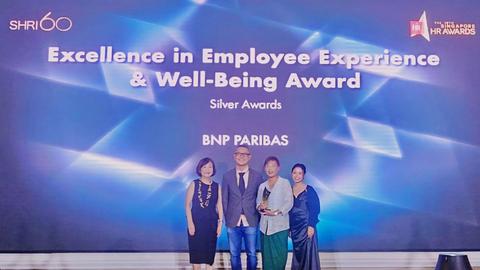Publications
FOCUS 75: Bridging expense management with artificial intelligence

Lee Chee Leong, Head, APAC at Jenji, believes that the company’s automated proactive analysis plays a crucial role in streamlining organisational processes.
In a COVID and post-COVID world, how can businesses manage costs while ensuring quality and user experience are not compromised?
Businesses that were slow to go digital prior to COVID-19 saw the necessity and urgency to pivot, adapt or revise their business strategies and seek new revenue streams through digitalisation. Companies have had to re-examine, reconfigure or even transform the way they work, serve their customers, and improve their internal processes to better manage costs.
Jenji helps businesses to manage their costs through expense transformation. That means shifting their manual, paper-based processes to a fully automated expense hub that employs the full power of Artificial Intelligence (AI), Machine Learning, fraud detection, and data analytics while ensuring that quality and user experience are not compromised.
Going fully automated means the expense submission and approval processes are quicker, more efficient and have fewer errors. For example, with Jenji’s OCR (Optical Character Recognition), users are not required to input receipt or invoice data manually. Accurate data extraction means time spent on data input is reduced by at least 80%.
Leveraging on AI, we help businesses proactively detect fraud and anomalies. A 2016 Global Business Travel Association and HRS report reveals that about 19% of expenses contain errors and it takes about 18 minutes to correct an expense report. The fact that potential expense frauds are proactively detected and highlighted means the process is more efficient and effective for expense controllers.
We also help organisations to internationalise their expense controlling functions with Jenji’s augmented OCR technology, called X-Ray, which recognises more than 100 languages. The solution can translate the language printed on the receipt to the language the user understands, giving visibility and transparency to expense controllers and approvers.
Is it important to integrate expense with parts of the business?
Despite companies adopting digital transformation, we often see expense management relegated to an isolated silo within organisations with tedious expense reporting, non-optimised control that allows for fraud or anomalies to slip through, and a partial vision of committed budgets that affects profits and margins.
Jenji offers a data-driven expense management product that connects to all business functions to achieve financial intelligence and full automation of spend management while taking into account business and/or industry specificities.
We help businesses make sense of their expenses by integrating with their IT ecosystems such as HRM, ERP, project management, and CRM systems as well as external data. With integration, businesses can contextualise their expenses. For example, with an integration of their project management system, businesses can understand the types and amount of expenses for each project, the profit margin, and the health of the cashflow. With this information, the best business decisions can be made to optimise the spend.
Remote work is at the heart of Jenji’s operations. What are some ways to maintain team workflow and retain top talent?
As a Fintech company with employees around the world, our colleagues are used to remote working. Regular and open communication is key. Our team members have regular video calls and our leadership conducts weekly meetings so everyone knows about the company’s progress, leadership priorities, and we celebrate our wins.
There are many effective employee retention strategies. But it begins with the right hire: that is by identifying an employee who fits in with the company culture, appreciates the company’s values, and most importantly, is inspired by the company’s purpose. To retain staff, companies should provide ongoing education and clear paths to advancement; be transparent and open (conduct regular dialogue and create pathways for discussion); and offer the right benefits that commensurate with the role.

Interview with Lee Chee Leong, Head of APAC at Jenji, for FOCUS #75. To read more articles from this issue, download your digital copy here


